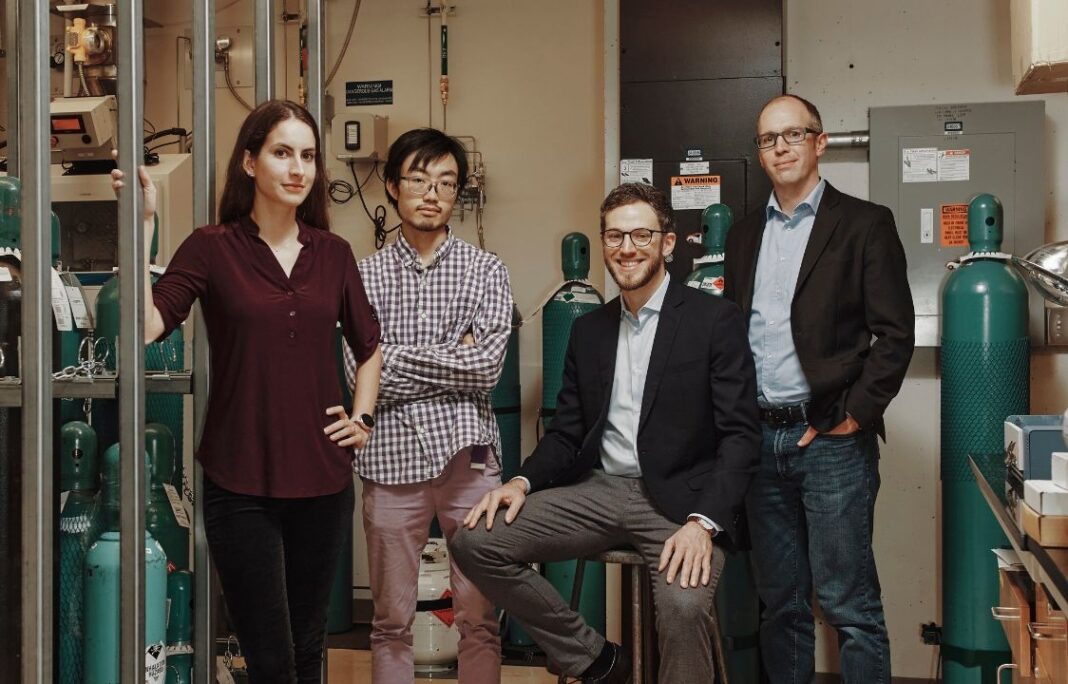Massachusetts-based Osmoses, an industrial separations technology company that purifies gases, the world’s smallest molecules, announced that it has raised an oversubscribed $11M (approximately €10.47M) in a Seed round of funding.
Osmoses is an industrial separations company that emerged from MIT in 2021, specialising in membrane technology. This technology efficiently purifies gases, including the tiniest molecules, with unprecedented performance.
By significantly reducing the energy and capital needed for gas purification, Osmoses claims to be playing a vital role in driving the global energy transition towards sustainability.
Investors in this round
The investment was led by Energy Capital Ventures. Additional investors include Engine Ventures, Fine Structure Ventures, New Climate Ventures, Collaborative Fund, Little Green Bamboo and BlindSpot Ventures.
Besides, several prominent angel investors also participated in this round, including Martin Madaus, the former CEO of Millipore Corporation.
Recently, Osmoses raised a $1.5M grant from the US Department of Energy (DOE), as well as additional grant support from ARPA-E and NSF, among other organizations. The seed investment also comes at a time when many federal and state financial incentives for energy transition projects are coming to bear.
Capital utilisation
Osmoses says it will use the money to develop commercial-scale membrane modules for field deployment and establish pilot partnerships.
Michael Kearney, Partner at Engine Ventures says, “This funding propels Osmoses toward commercialisation, getting first products into the hands of key partners and scaling the team to deliver on its ambitious goal of playing a foundational role in decarbonizing heavy industry.”
In the near future, Osmoses plans to expand. They intend to double their employee count, expanding their workforce substantially. Additionally, the company aims to scale up its pilot programmes, collaborating with chemical and petrochemical companies, utilities, and alternative energy firms.
Osmoses also plans to establish partnerships with engineering and manufacturing companies, indicating a strategic focus on collaboration and growth in the energy sector.
Osmoses’ Membrane technology
According to Osmoses, current industrial gas separation processes are energy-intensive and contribute significantly to greenhouse gas emissions. Industrial separation processes use 15 per cent of the world’s energy, contributing to 89 per cent of energy-related CO2 emissions in 2022.
Membrane technology, which uses molecular filters to separate gas molecules, shows promise in reducing energy consumption.
Challenges such as product loss and high operating costs hinder widespread implementation. Ongoing research focuses on improving membrane materials, optimising processes, and integrating membranes with existing systems.
Collaboration between governments, industries, and research institutions is essential to advancing membrane technology, making it a more sustainable solution for low-carbon energy production.
Osmoses has introduced a patented membrane technology that purifies gas molecules more efficiently and affordably than traditional methods. Their breakthrough polymer materials, reduce industrial energy consumption by up to 90 per cent.
Osmoses’ solution offers higher product recoveries at a lower cost, with over 50 per cent reduction in footprint, making it a significant advancement in gas separation processes, particularly for applications like hydrogen purification and helium recovery.
Francesco Maria Benedetti, co-founder & CEO of Osmoses says, “Solving the challenges of global decarbonisation and enabling the energy transition isn’t possible without changing how industry separates gases. Low-carbon hydrogen and biomethane are energy vectors that can help us achieve a cleaner future, but we need a more cost-effective, climate-friendly process for accessing these precious gas molecules.”
“Osmoses’ cutting-edge membrane technology can reduce the impact of gas separations on the environment while also increasing the economic incentive for end-users and positively impact communities disproportionately affected by climate change.”
“By beginning to commercialise our platform, we’ll enable more organisations across the globe to hit their net-zero goals and eliminate energy waste with our transformative molecular separation technology,” adds Benedetti.
Additionally, Osmoses also has demonstrated potential to decarbonise various applications within the gas separation industry, including oxygen generation, helium harvesting, refrigerant reuse, and carbon capture. Osmoses’ polymer material platform aims to supercharge a $15B gas separations industry – already expected to grow to $35B by 2030.






